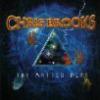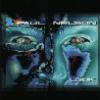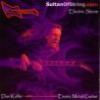Sooner or later, you`ll want to make your solos more exciting. Start by making up new scale sequences.
Whether composing, improvising, or simply practicing technique, the importance of scales cannot be underestimated. Scales are organized sequences of notes played in an ascending or descending order that can help players build finger strength and dexterity, as well as help the improvisor/composer to establish moods and tell a story. Within any linear sequence of notes, you'll typically hear musical tension and resolution. While many guitarists begin their training with the 5-note Pentatonic scale, there is much to learn and absorb with the variety of scales that can be applied in creative ways over a myriad of chord progressions.
Here are dozens of articles by our columnists that have appeared over the years on the subject of scales, scale patterns, scale connection and more.

Sooner or later, you`ll want to make your solos more exciting. Start by making up new scale sequences.

Italian guitarist Salvatore Vecchio with a column on mixing various pentatonic scales to achieve something fresh.

How to expand your soloing arsenal by reworking some familiar ideas.

Paul Nelson talks about the Ionian, or Major scale.

More creative ways to use modal pentatonics in your playing.

Constructing your own chord voicings and increasing your chord vocabulary.

Virtuoso classical guitarist and instructor Jamie Andreas answers the burning question.

Let the Sultan of String take you on the exotic scale ride of your life.

Let the Sultan of String explain the finer points of the Yona Nuki and In scales.

Use this scale to yield great sounds in jazz and ragtime, through perilous horror-film mayhem, cheese-metal and progressive rock fusion.

Let the Sultan of String blend, meld, mix and match scales, yielding a unique, exotic effect.

Do you know them? You must know them! Check out Mike Campese`s essential scales review.